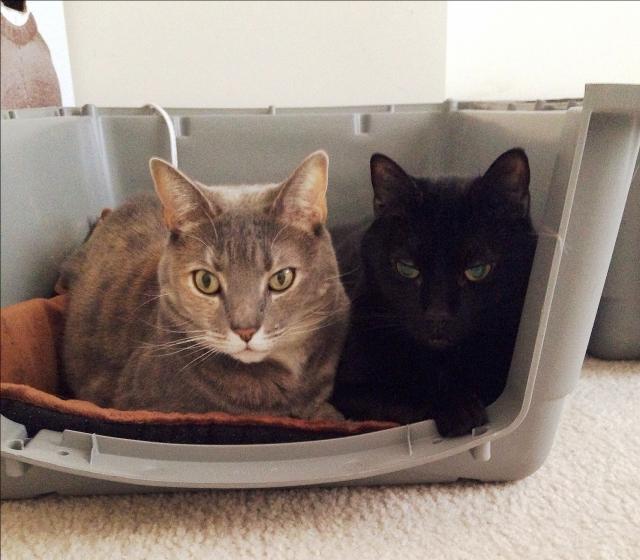What To Do and Where To Begin: Frequently Asked Pet Travel Questions
 Since moving pets can be pretty complicated and will most likely coincide with a busy, stressful time in life, we're not surprised that we receive a lot of questions from overwhelmed pet owners about the logistics, the details, and the costs of pet travel.
Since moving pets can be pretty complicated and will most likely coincide with a busy, stressful time in life, we're not surprised that we receive a lot of questions from overwhelmed pet owners about the logistics, the details, and the costs of pet travel.
We've been shipping pets for a while now and have heard it all... Here are a few of the most frequently asked pet travel questions (along with our basic answers). Remember, no one is alone in this!
How do I know what the requirements are for my destination country?
- Making sure that a pet's journey runs smoothly begins with research. Many countries have detailed import instructions on their own official Ministry of Agriculture websites: stringent countries like Australia outline almost everything, for example, but other places may not be so forthcoming, so you may need to check another source -- like IATA or the PetRelocation country pages -- to find out about health documents, vaccines, and possible quarantines.
- You can also visit our Getting Started With Your Pet Move page -- here, we've compiled lots of country information, quarantine guides, client stories, and crate-training tips.
Which airline should I fly with?
- This is perhaps the most important decision you can make related to pet travel. It's key that you choose an airline with established pet policies and solid safety measures to ensure that your pet is properly cared for, not left to sit on the tarmac, and respectfully transported overall. We have a short list of trusted airlines, including KLM, Lufthansa, and Qantas, but check with us if you have any questions about this.

How do I know my pet will be safe?
- This is probably the most common question requiring the most nuanced answer. Again, safety primarily depends on selecting trustworthy airlines and transport agents. Still, you can also do your best to prepare your pet physically by keeping them in good shape and properly hydrated, acclimating them to their travel crates, and setting a good example by remaining calm and upbeat days before the trip.
- Remember that sedatives are not permitted for safety reasons (and most airlines won't even accept a pet who appears to have been sedated). Crate training your dog or cat is a much better way to help your pet feel calm and safe during a trip.
- With so many moving parts, it's impossible to guarantee a journey 100% free of hiccups. Still, by following these basic guidelines and consulting with your vet about any questions, you're putting your pet in the best position possible.
Why does it cost so much to ship a pet?
- We've addressed the question of pet moving costs in greater depth in the past, but essentially it comes down to the details. When you add import permits, health certificates, customs clearance, delivery fees, plane tickets, and a few other considerations, it simply isn't a cheap endeavor. Does it end up being worth it, though? Most pet owners would say, "of course."
Should I move my pet at all?
- This is a tough one, and for certain people, it's a question that must be asked. Relocations often make pet travel practically necessary, and trips can be planned safely with the help of a professional. Still, there is no denying that air travel can tax humans and animals, and older pets or those in delicate health may not be up for it.
- Also, many people don't realize how much is involved with air travel and crossing borders in terms of time, stress, and money, so if this is just a vacation (rather than a permanent move), it will probably be better to find a trusted pet sitter rather than jump through so many hoops unnecessarily.
Ultimately it is the safety of the pet that's the most important thing to consider, so often, a conversation with your vet, your family, and your pet relocation specialist will help you figure this out.
Still have questions? We're happy to help! Contact us, and check out our Facebook page to connect with other pet travelers who probably have the same questions as you. Happy traveling, everyone!
Bringing pets to United States?
Here’s what to know about moving pets to United States.
